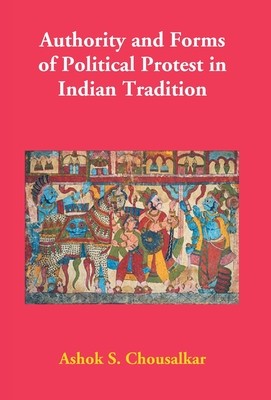
- We will send in 10–14 business days.
- Author: Ashok Chousalkar S
- Publisher: Gyan Books
- ISBN-10: 9386397064
- ISBN-13: 9789386397065
- Format: 14 x 21.6 x 1.3 cm, kieti viršeliai
- Language: English
- SAVE -10% with code: EXTRA
Authority and Forms of Political Protest in Indian Tradition (e-book) (used book) | bookbook.eu
Reviews
Description
In ancient India, there was a close link between the nature of political authority and forms of political protest. Authority of the king was legitimized through the Vedic rituals such as consecration ceremony. Second method of legitimization was based on the consent of the people which was secured through social contract theory of origin of kingship. Indian thinkers argued that the king who did not follow the principle of Dharma would suffer loss of authority. In ancient India, the people followed various methods of protest to bring about change in the unjust policies of the government. If the king did not change his behavior after the protest, the people tried to overthrow the government. They used both nonviolent and violent methods. They offered dharna, demonstrations, fasting, jumping in fire to register protest, non-payment of taxes, assassinations of the tyrants and mass lynching of wicked despots. Freedom fighters in modern India followed some of these forms of protest to fight against foreign rule. It is for the first time that the forms of protest are described and critically analyzed in a book.
EXTRA 10 % discount with code: EXTRA
The promotion ends in 23d.07:36:29
The discount code is valid when purchasing from 10 €. Discounts do not stack.
- Author: Ashok Chousalkar S
- Publisher: Gyan Books
- ISBN-10: 9386397064
- ISBN-13: 9789386397065
- Format: 14 x 21.6 x 1.3 cm, kieti viršeliai
- Language: English English
In ancient India, there was a close link between the nature of political authority and forms of political protest. Authority of the king was legitimized through the Vedic rituals such as consecration ceremony. Second method of legitimization was based on the consent of the people which was secured through social contract theory of origin of kingship. Indian thinkers argued that the king who did not follow the principle of Dharma would suffer loss of authority. In ancient India, the people followed various methods of protest to bring about change in the unjust policies of the government. If the king did not change his behavior after the protest, the people tried to overthrow the government. They used both nonviolent and violent methods. They offered dharna, demonstrations, fasting, jumping in fire to register protest, non-payment of taxes, assassinations of the tyrants and mass lynching of wicked despots. Freedom fighters in modern India followed some of these forms of protest to fight against foreign rule. It is for the first time that the forms of protest are described and critically analyzed in a book.


Reviews